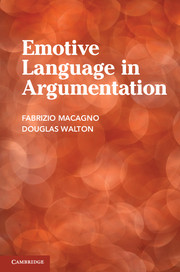Conclusion
Published online by Cambridge University Press: 05 June 2014
Summary
When we think about words we only consider what they express, what they are used for “saying.” We often may not realize that words have a silent side. Their use can hide implicit moves and complex arguments based on propositions that are left unsaid. Nobody would be moved by the description of a battlefield as a place of war, or by the claim that missionaries acted in peace. However, these words become emotive when we speak of the war on terror or missions of peace. Something unsaid hides behind them and justifies their use or appears to justify it, leading us to certain conclusions. They do more than express a categorization of reality. They are silent emotional persuaders.
Some words have the power to influence our judgments and our decisions. We approve of an action when brought about for the purpose of ‘peace.’ We are horrified when a nation allows practices such as ‘torture.’ The use of these words can influence our emotions and our evaluation of reality, and at the same time their deceptive use can distort our perceptions of the world and lead an audience toward accepting conclusions that are not supported by evidence-based reality.
- Type
- Chapter
- Information
- Emotive Language in Argumentation , pp. 260 - 264Publisher: Cambridge University PressPrint publication year: 2014



